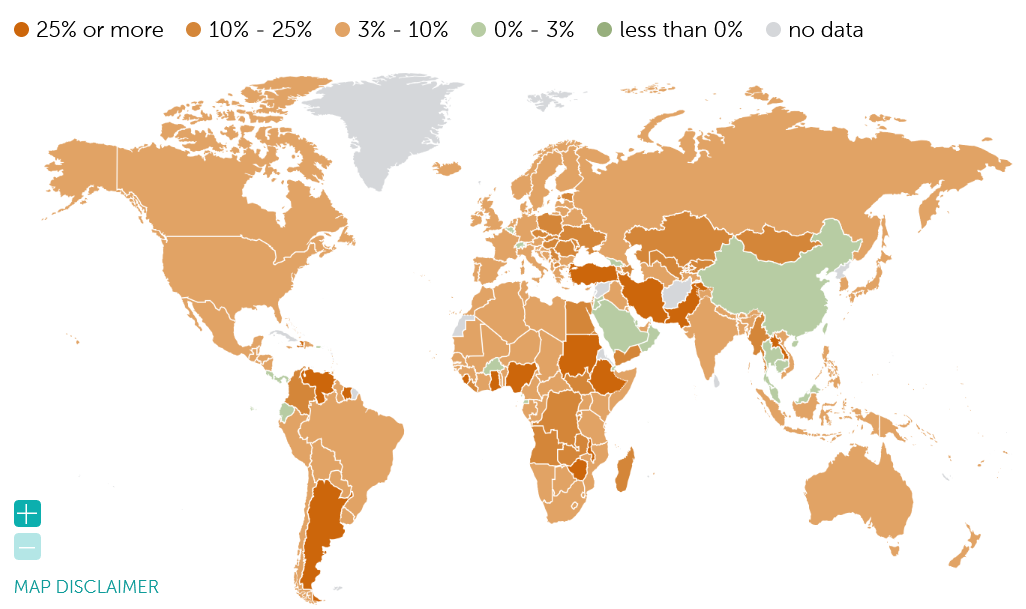The most anticipated development for investors in Bitcoin may be breaking the all-time high (ATH) level. However, Bitcoin has achieved this in three different fiat currencies during the recent surge. Between October 23-24, Turkey, Argentina, and Nigeria saw the price of Bitcoin reach ATH levels.
ATH Broken in Three Fiat Currencies
While Bitcoin’s recent 16% price increase certainly played a role in this development, the main factor here is the ongoing devaluation problem in these countries. The Naira and Turkish lira reached their lowest levels against the US dollar on October 24 and 25. The Argentine peso is only 0.85% away from its all-time high against the US dollar.
According to the International Monetary Fund (IMF), the Venezuelan bolivar currently has the highest inflation rate with a yearly rate of 360%. It is followed by the Zimbabwean dollar with 314%, the Sudanese pound with 256%, and the Argentine peso with 122%.
According to the IMF data, the Turkish lira ranks sixth on this list with a yearly inflation rate of 51%, while the Nigerian naira ranks 15th with a yearly inflation rate of 525%. Crypto researchers have long seen cryptocurrencies like Bitcoin and stablecoins as a hedge against rising inflation.

Notable Data
According to a report published by the data analysis platform Chainalysis on September 12, Nigeria, Turkey, and Argentina are among the top 15 countries globally in terms of cryptocurrency adoption. Nigeria ranks second on this list, Turkey ranks 12th, and Argentina ranks 15th.
While the citizens of these countries may embrace crypto, their governments do not share the same view. The Central Bank of Nigeria, after banning local banks from providing services to cryptocurrency exchanges in February 2021, has started to take a more moderate approach towards cryptocurrencies.
Progress was made with the announcement of the intention to pass a bill in December 2022 recognizing cryptocurrencies as investment capital in Nigeria, and the need to adapt to global practices was cited as one of the main reasons behind the change in the government’s stance.


 Türkçe
Türkçe Español
Español










